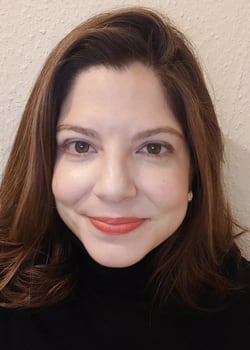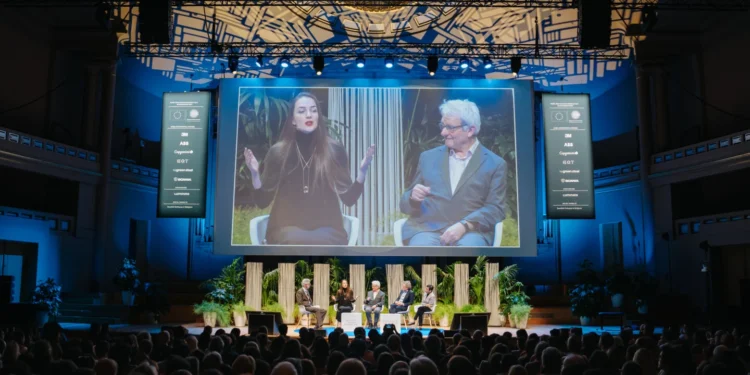Aroa Fandiño
On June 20th, in Strasbourg, the Campaign to Uphold Rights in Europe (CURE Campaign), in collaboration with the European Movement of Alsace and PromoUkraïna, organized a public talk with 2022 Nobel Peace Prize laureate Oleksandra Matviichuk, held at the FEC Strasbourg auditorium. The event marked the 75th anniversary of the European Convention on Human Rights. Far from being a mere symbolic commemoration, her speech served as a profound ethical call to Europe—a reminder that freedom is not guaranteed and that dignity demands action. Contributing to making this encounter possible was a true privilege.
Matviichuk spoke from her firsthand experience after years of documenting war crimes committed by Russian forces in Ukraine. Since the onset of the full-scale invasion in 2022, her organization has recorded over 88,000 instances of violence and atrocities. One of the stories she shared was that of a young boy named Illya, whose mother froze to death in his arms in a basement in Mariupol. “The law no longer works,” she stated, alluding to the collapse of the international system that, after World War II, had vowed “never again.” Matviichuk warned that the global security framework, built upon the UN Charter and its institutions, is now in ruins. “The Security Council is paralyzed,” she noted. “And when the international scaffolding collapses, wars don’t just continue—they multiply.”
Yet her message was more than a denunciation; it was a profound critique of a democratic culture that is beginning to hollow out from within. “Many in Europe and around the world have inherited democracy from their parents and have begun to take freedom and security for granted,” she warned. “Those who measure everything only in terms of comfort and reject ethical foundations suffer from a crisis of vision. If you want your future on a credit card, remember: one day, that debt will have to be paid—with interest.”
In contrast to that short-sighted view, she proposed an alternative: “dignity in action.” She recounted the story of Ukrainian philosopher Ihor Kozlovskyi, who was imprisoned and tortured for 700 days and who, in order to preserve his sanity, gave philosophy lectures to the rats in his cell. “The foundation of our existence is dignity, not victimhood,” she said. “It’s not just about feeling responsible—it’s about doing what is right to change what is happening.”
Ukraine, she explained, is not only fighting for its sovereignty, but for the very meaning of human rights in the 21st century. “This war is not between two countries—it is between two systems: authoritarianism, which treats people as objects, and democracy, which puts them at the center.” And she warned that this confrontation is not solely military; it also has an informational dimension. “This war is also a battle for hearts and minds,” she said. “Authoritarian regimes invest millions in disinformation, propaganda, and cynicism—not only to justify their crimes, but to sow apathy in free societies. When we stop believing that truth exists, we stop fighting for it.”
In this context, standing by is not enough: even when all seems lost, we still have our words, our stance, our decisions.
At a time when truth is manipulated and comfort numbs the conscience, listening to Matviichuk in Strasbourg was far more than an honor—it was an invitation to recover our moral compass. And, as she concluded with clarity and conviction:
“Hope is not the belief that everything will turn out fine. It is the deep understanding that all our efforts matter.”







